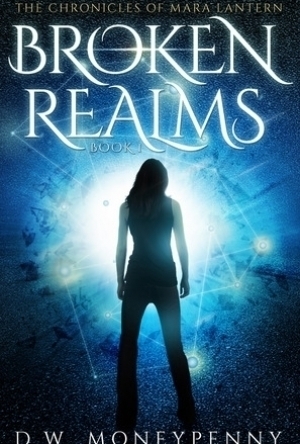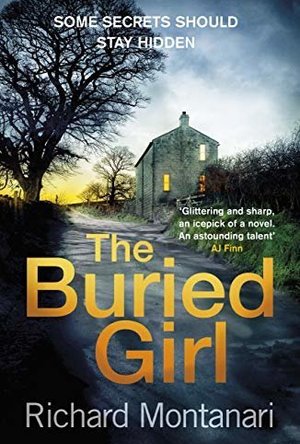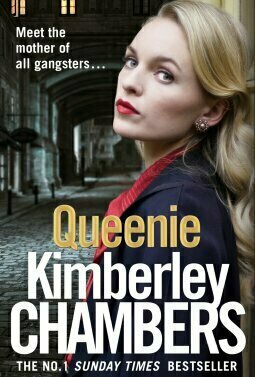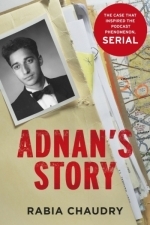
Adnan's Story
Book
'The first letter I received after being arrested in 1999 was from Rabia. Since that time until now,...
Crime true crime non-fiction

Skoobe - Die eBook Flatrate
Book and Entertainment
App
For Booklovers: More than 175.000 eBooks & unlimited reading on phones & tablets Find new books...
Hazel (1853 KP) rated Broken Realms (The Chronicles of Mara Lantern, #1) in Books
Dec 7, 2018
<i>Broken Realms</i> is a brilliant science fiction novel and first installment of <i>The Chronicles of Mara Lantern</i> by D. W. Moneypenny. Set in present day Oregon it deals with metaphysical ideas and bizarre creatures – a very intriguing read.
Mara Lantern is a young adult who has left school to work in a gadget repair shop where her amazing natural talent for restoring machinery is put to good use. At the commencement of the book she is being driven to the airport by her New Age obsessed mother in order to fly out to San Francisco to visit her father. Once the plane is airborne it is clear there is something terribly wrong. Bright blue light flashes throughout the aircraft and the passengers around Mara appear to be distorting: growing fangs and snouts, and changing eye colour. What is even stranger is a redheaded boy is running down the aisle closely pursued by a clone of Mara.
In an attempt at an emergency landing, the plane crashes into the Columbia River – a crash impossible to survive – however everyone does. All the passengers and crew are pulled out of the river unharmed; all except Mara who is strangely found unconscious on the pavement with a head wound.
Detective Daniel Bohannon is assigned to the case investigating the cause of the crash, but when some of the survivors start displaying super-human or animalistic traits it becomes clear this was no ordinary situation.
Whilst the investigation continues, Mara begins to deal with what she saw on the plane. With the help of a fellow survivor, Ping, and the redheaded boy, Sam (who claims he is her brother) she begins to learn that her world, her life and human existence in general is not all she believed it to be.
Although <i>Broken Realms</i> is accurately described as a science fiction and fantasy novel there were times, particularly during the police investigations, that it also felt a little like a crime thriller. There is nothing particularly bad about that but to begin with it was as though there were two different genres competing with each other depending on which character point of view was being read.
What helped to make this book so great were the excellent writing skills of D. W. Moneypenny. It was written so clearly that vivid images came to mind whilst reading. The pace of the narrative was fairly quick and at no point did it ever stop being exciting.
Another good thing (admittedly others may not see it as such) was that there were no romantic attachments between any of the characters to detract from the main storyline. This meant the novel was completely focused on the plot without any unnecessary interruptions.
<i>Broken Realms</i> is a highly recommended book for science fiction and fantasy lovers. It does, however, leave the reader wanting to know what is going to happen next. So now the wait for the next book in <i>The Chronicles of Mara Lantern</i> begins.
Midge (525 KP) rated The Buried Girl in Books
Mar 5, 2019
When the wife of a New York psychologist, Will Hardy, is murdered he moves into Godwin Hall, a dusty, shut-up mansion in the small town of Abbeville, Ohio, with his teenage daughter, Bernadette.
At the same time, Abbeville Chief of Police Ivy Holgrave is investigating the death of a local girl. She is convinced this may only be the latest in a long line of murders dating back decades, including her own long-missing sister.
But what place does Will's new home have in the story of the missing girls and why does he have past memories of Godwin Hall? Is the diary of a young woman, written over a century earlier, linked to the killings?
Richard Montanari writes a wonderfully atmospheric and compelling novel. Tense and suspenseful, the many threads of the story slowly begin to link together, central to which is Godwin Hall. Both the characterisation and the plot are superb with the three main characters damaged, but starting the process of recovery. I am hoping that there will be a sequel to this novel as it was a fantastic read which I highly recommend to lovers of thrillers and crime fiction.
{Thank you to Edelweiss and HarperCollins UK/Witness Impulse for the free copy of this novel and for giving me the opportunity to provide an honest review.}
This book tells the story of Queenie from her life as a young girl during World War II right up to the early 60's and what a life she leads! She is one heck of a character; one minute you absolutely adore her, the next she disappoints you, then she'll surprise you and then shock ... I felt like I was on a rollercoaster of emotions from start to finish and I still don't know how I feel about her even now!
Queenie is not the only character however, this book is absolutely brimmed to the rim with fantastic personalities from the bit players to the main stars; some you'll love and some ... not so much. The setting in the east end of London felt perfect but it could equally have worked in any inner-city borough. For those of us who weren't around during the time span of this book, I felt it captured them well and it felt authentic and believable to me.
"Queenie" is a gritty, engrossing and thoroughly entertaining read and one I would definitely recommend even if you haven't read any of the other books in the "Butler" series; this can easily be read as a standalone as it is the prequel to the first book in the series "The Trap."
Thanks to HarperCollins UK, HarperFiction via NetGalley for my copy in return for an honest and unbiased review.

The Sting Man: The True Story Behind the Film American Hustle
Book
The Sting Man: The True Story Behind the Film AMERICAN HUSTLE The inspiration behind the film...
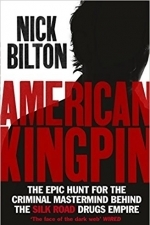
American Kingpin: Catching the Billion-Dollar Baron of the Dark Web
Book
A NEW YORK TIMES BESTSELLER The unbelievable true story of the man who built a billion-dollar...
crime biography
The Likeness (Dublin Murder Squad, #2)
Book
The haunting follow up to the Edgar Award-winning debut In the Woods Tana French astonished...
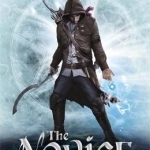
The Novice (Summoner Book 1)
Book
Demons, magic and epic adventure - introducing the first book in the New York Times bestselling...
young adult fantasy magic fiction magic

Steal Big: New York
Book
The private detention centre in Manhattan has received its last inmate. Due to be closed for the...
